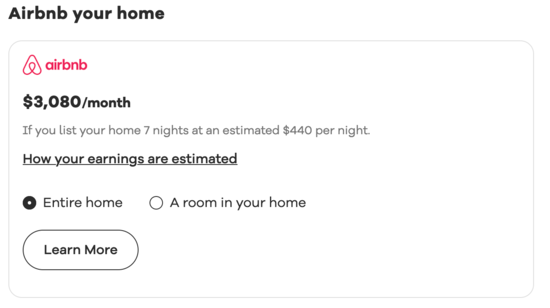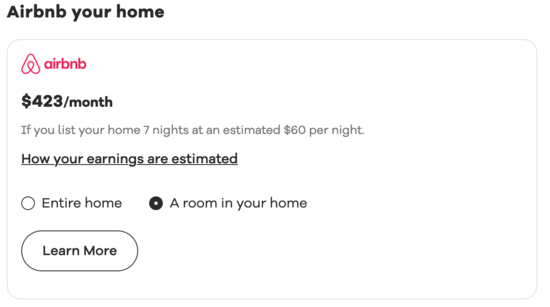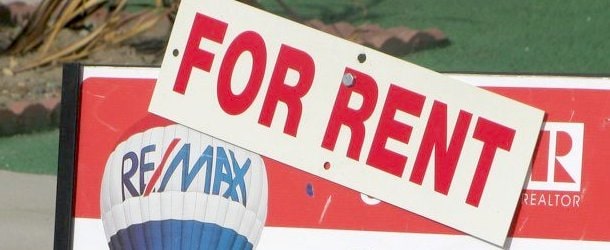If you peruse real estate listings on Realtor.com, you might come across a new Airbnb integration.
This week, the two companies announced a collaboration that lets homeowners see how much they could fetch to rent out a room, or the entire house.
It comes at a time when short-term rentals, or STRs for short, are somewhat under-fire given their immense growth.
The Airbnb story also happens to coincide with a residential housing shortage, with some critics blaming STRs on the lack of supply.
In any event, if you’re interested in seeing your Airbnb earnings estimates, you’ll need to add your property to Realtor’s My Home dashboard first.
How to Find Your Airbnb Host Estimate on Realtor.com

To get started, you’ll need to head over to the My Home dashboard on Realtor.com and add your property if you haven’t already.
This will also entail creating an account on Realtor.com if you don’t have one. It’s fairly simple and seems to only require an email and password.
From there, you’ll see a variety of information pertaining to the property added, including its RealEstimate, which is the site’s take on a Zestimate.
You’ll also see a tab titled “Host or rent,” which will contain your Airbnb host estimate. It provides both an entire home estimate and a room estimate.
A sample of the entire home estimate can be seen in the screenshot above. The single room estimate can be seen below.

It defaults to a 7 nights out of a month to give you a rough estimate of what you could earn via the Airbnb platform for renting it out for part of the month.
The estimates, which are provided by Airbnb, consider factors such as the zip code and bedroom count.
Airbnb reviews booking data over the past 12 months from the top 50% of similar listings (based on earnings) in the area where your home is located.
Then it computes nightly earnings, which are defined as the price set by each Airbnb Host minus the Airbnb Host service fee.
Note that Airbnb doesn’t subtract cleaning fees, taxes or other hosting expenses you might charge/incur when calculating the nightly estimate.
At the moment, these estimates are only available for U.S. addresses and do not factor in the number of guests a listing might accommodate.
And while they may strive to provide an accurate estimate, it’s just an estimate and no guarantee of what you’d actually earn.
Actual earnings can depend on a variety of factors, such as availability, listing price, and demand in the area.
Lastly, and here’s the biggie, the ability to host your property may also depend on local laws.
In other words, it may not actually be permitted to list your property as an STR in your city.
Is the Airbnbust Finally Upon Us?
There have been rumblings for a while now about a so-called “Airbnbust,” the premise being that too many first-time landlords purchased homes with the express purpose of making them STRs.
And now that there are so many of them, the hosts may encounter buyer’s remorse.
This could be due to unforeseen problems, a lack of experience being a host, complaints from neighbors, or simply that the earnings just aren’t there.
Throw in the fact that some hosts acquired multiple properties and these problems could be exponential.
Of course, some hosts might be raking in the dough, depending on how cheap they got in and how much demand their property has.
After all, many of these properties were purchased when 30-year fixed mortgage rates were 2-3%. And when home prices were half what they are now.
So even if competition rises, or they run into issues like unexpected refunds or cancellations on the platform, they may still do just fine.
But the real doomers out there think these STRs will be the first shoe to drop, setting off a panic and an eventual wider housing crash.
Critics on the other side say there aren’t enough of these properties to make a major impact, but in certain vacation areas there are larger concentrations.
Another issue is lack cities are beginning to ban STRs, with New York City being the latest to impose major restrictions.
This week, they launched new rules that only allow sub-30 day rentals if hosts register with the city.
And they “must commit to being physically present in the home for the duration of the rental, sharing living quarters with their guest.”
In other words, you can only rent out a room, like a traditional Bed and Breakfast, assuming it’s for less than a month.
And no more than two guests are allowed at a time, meaning larger families are effectively out of luck.
Obviously, sweeping changes like this could lead to a flood of sales if a long-term rental isn’t feasible (or simply as lucrative).
But it all remains to be seen. Many of those critical of Airbnb and other STR platforms such as VRBO, feel many of these properties could be going to families, instead of being rented out for a profit.
Especially first-time home buyers looking to lay down roots and start a family.
The STR gold rush may have also inadvertently sent home prices even further out of reach for the average person just looking to realize the American Dream.

